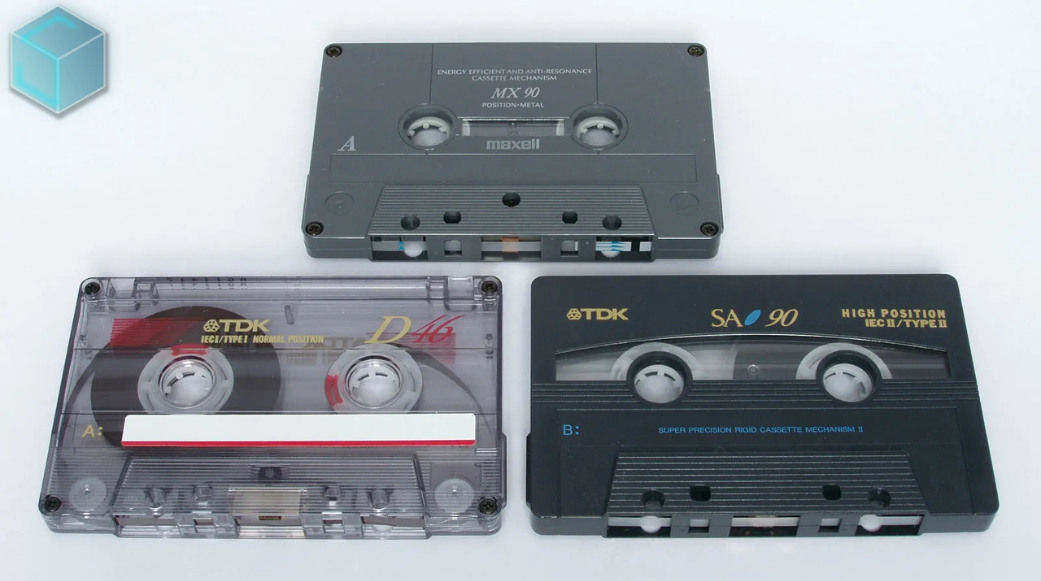
October 23, 2025
Discover how Mix Master strengthens your brain just like an instrument - training focus, creativity, and emotional intelligence through the science of sound.
Read more.png)
September 8, 2025
Tools like Suno are now powerful enough to generate melodies, lyrics, and even full songs in seconds. That’s exciting—and controversial. Just ask Timbaland. Recently, he came under fire..
Read more
August 23, 2025
The 1980s and 1990s analog music medium known as cassette cassettes is experiencing an unanticipated comeback, with Gen Z spearheading the trend. Taylor Swift, who included cassettes in the release...
Read more
August 23, 2025
This week's most notable headline: Doja Cat's erotically charged, '80s-inspired music video, "Jealous Type," is dominating social media feeds and cultural discourse, marking her most daring...
Read more
August 23, 2025
J-hope and GloRilla's "Killin' It Girl," a spectacular blend of K-pop flare and shameless hip-hop heat that has taken the world by storm, is this week's winner of the Best Collaboration of Summer...
Read more
August 23, 2025
Carly Rae Jepsen is giving fans the ultimate gift for the 10th anniversary of her critically adored album Emotion: a special edition featuring four never-before-heard tracks and two fresh remixes...
Read more
August 23, 2025
The wait is over, ARMY! BTS is officially back together and balancing work and play in their first moments of reunion after completing mandatory military service. J-Hope sent fans into a frenzy...
Read more
August 23, 2025
Christian music stepped outside of its quiet comfort zone in 2025. "Hard Fought Hallelujah," a worship song by Brandon Lake, went platinum, sold out festival stages, and exploded from churches to...
Read more
August 23, 2025
In late July 2025, Christian artist Forrest Frank (of Surfaces, now a solo juggernaut in faith-pop) posted from a hospital bed: he’d fractured his L3 and L4 vertebrae in a skateboarding accident...
Read more
August 21, 2025
On September 16, the masked metal phenomenon Sleep Token will embark on their 2025 "Even In Arcadia Tour" across North America. The 18-show tour, which includes a huge date at Brooklyn's Barclays...
Read more
August 21, 2025
Due to a line dance that went viral and won over fans' hearts both inside and outside of the United States, 22-year-old Tre Little's song "Boots on the Ground" has become a cultural sensation this...
Read more
August 21, 2025
In addition to preparing for her next album, The Life of a Showgirl, Taylor Swift is reviving the physical medium this week by putting her songs on cassette tapes. This sentimental action...
Read more.png)
Hey there, fellow beatmakers! It’s awesome that you’ve started producing regularly—consistency is a crucial first step in mastering your craft. However, as you’ve noticed, simply making beats doesn’t always lead to unique or high-quality results. That’s totally normal. Developing your skills and becoming proficient as a beatmaker is a process that takes time, patience, and, most importantly, intentional practice.
In this article, we’ll explore the most efficient ways to master your creative process as a beatmaker, and how you can learn from one of the most respected producers in the game: J Dilla.
It’s easy to fall into the trap of making beats on autopilot. You’re producing regularly, but if you’re not actively trying to improve with each session, you might find yourself stuck in a loop of creating “mid” beats. The key here is intentional practice.
J Dilla's Approach
J Dilla, widely regarded as one of the greatest producers in hip-hop history, was known for his relentless work ethic and intentional practice. He didn't just create beats randomly; he meticulously worked on his craft every day, setting goals to refine his sound, whether it was through exploring new drum patterns, sample manipulation, or pushing the boundaries of rhythm and timing.
Crate digging is an essential part of beatmaking, especially if you’re sampling. But as you’ve pointed out, it can be easy to fall into the habit of grabbing random songs off YouTube without fully exploring the music. To improve your beats, try refining your digging process:
J Dilla's Approach
Dilla was a master of crate digging. He spent hours digging through records, searching for obscure samples that no one else had touched. His knowledge of music was extensive, and he understood the records he sampled inside and out. This allowed him to chop and manipulate samples in unique ways, creating beats that were far from disposable—they were timeless.
One thing that separates the greats from the rest is their deep understanding of music. If you feel like your beats are disposable, it might be because you’re relying on basic ideas without enough musical depth. Here are some ways to expand your musical knowledge:
J Dilla's Approach
J Dilla’s knowledge of music went beyond just sampling. He had a deep understanding of rhythm, melody, and harmony, which allowed him to create beats that were complex yet accessible. His unconventional use of rhythm, like the "drunken" swing in his drum patterns, came from his vast knowledge of jazz, funk, and soul. This gave his beats a unique feel that many producers still try to emulate today.
One of the most efficient ways to master your craft is to develop a consistent and methodical approach to beatmaking. This means creating a workflow that allows you to stay organized and focused. Here’s how:
J Dilla's Approach
Dilla was known for his methodical approach to beatmaking. He had a daily routine that involved hours in the studio, refining his craft. His process was highly disciplined, yet he remained fluid and creative within that structure. This methodical approach allowed him to produce an enormous body of work, much of which continues to influence modern music.
No matter how long you’ve been making beats, feedback is invaluable. Share your work with other producers, mentors, or even non-musicians to get fresh perspectives on your music. Don’t take criticism personally—use it as a tool to improve.
J Dilla's Approach
Dilla was never afraid of collaboration and often sought feedback from his peers. He worked with a range of artists, from A Tribe Called Quest to Erykah Badu, and these collaborations helped him grow as a producer. He was always open to refining and iterating on his beats until they met his high standards.
Mastering your craft takes time. It’s common to go through periods where you feel like you’re not improving or your work isn’t good enough. But don’t let this discourage you. Keep pushing through those moments, and trust that with consistent effort, you will see growth.
J Dilla's Approach
Dilla’s persistence and patience were key to his success. He didn’t achieve greatness overnight; it took years of consistent work and dedication. Even when faced with health challenges, he continued to produce groundbreaking music, showing that persistence pays off in the long run.
Mastering your craft as a beatmaker isn’t about producing a masterpiece every time you sit down at your DAW. It’s about developing a process, honing your skills, and growing your knowledge over time. By focusing on intentional practice, refining your crate-digging process, expanding your musical knowledge, and staying patient, you’ll start to see the quality of your beats improve.
So, what’s your process? How do you approach beatmaking, and what challenges have you faced along the way? Let’s chat in the comments and learn from each other!